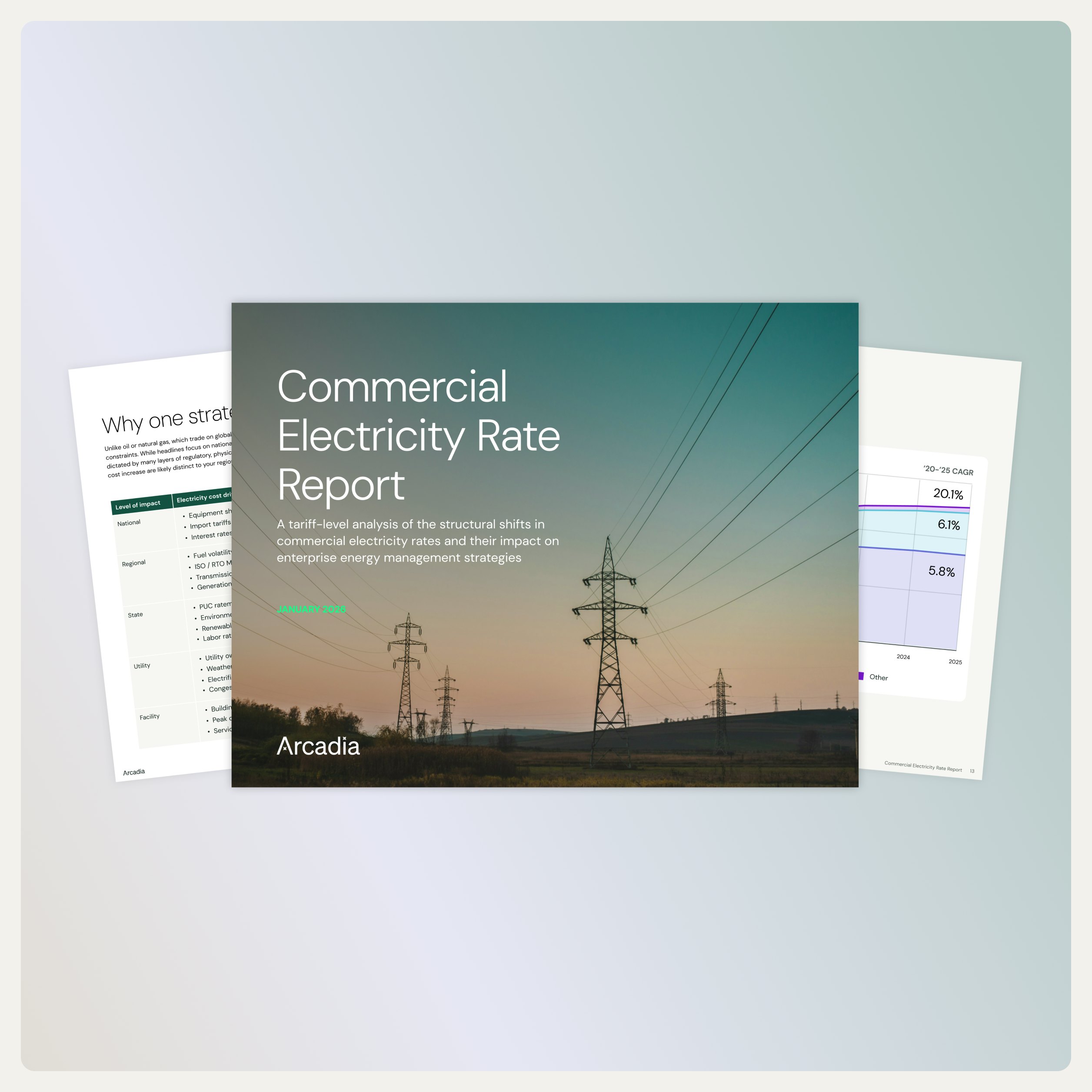How to talk to your friends and family about the climate crisis

Fighting climate change feels like something we can all get behind, right? But that doesn't mean that talking about it is easy. The existential threat of the climate crisis is too big for us to really grasp. Misinformation is rampant. The topic has become highly politicized. Can you blame people for wanting to avoid it? Even the media doesn’t talk about climate change very much.
One of the best ways to get someone to care about something is to share why you care about it.
At Arcadia, we believe that there’s strength — and change — in numbers. That’s why talking about the climate crisis is so important. It’s something we can all do to help bring our friends and family into the fight to save our planet. People trust their loved ones more than they trust distant, unknown experts. By opening up a conversation, you can help loved ones realize that the climate crisis is going to affect all of us, so we all need to work together to solve it. You can empower them to take action.
Starting that dialogue can make a big difference. After all, we’re not going to get anywhere on solving the climate crisis if we don’t talk about it. Here are some tips to help you navigate that conversation.
Tell a story and make it personal
We love stories, especially when they come from the heart. One of the best ways to get someone to care about something is to share why you care about it. Personal storytelling about why you switched to renewable energy helps make the climate crisis real and makes listeners feel like they can take action, too.
To make your story most effective, keep it concise and appropriate for the setting. Maybe you could talk for 30 minutes about why you’ve decided to fly less, but chances are you’ll lose your audience. And maybe the middle of dinner isn’t the best time to explain how easy it is to power your home with renewable energy. When you do find a good moment for those topics, though, follow a clear narrative structure. Activists recommend breaking down the challenge you faced, the choice you made, and the outcome of that choice.
And don’t be afraid to invoke emotion — without tugging on people’s heartstrings. Use this as an opportunity to connect to shared values or shared experiences you have with the person you’re talking to. Maybe you’re both parents, and you want to leave a stable climate for your children. Maybe you both love hiking, and you want to protect the environments you love to explore. Whatever it is, connect the dots between those values and climate change.
Don’t lecture
You may know a ton about the climate crisis, but dumping everything onto the person you’re talking to is going to get you nowhere. We love facts, and we love clearing up misinformation about the climate crisis, but burying someone under an avalanche of facts can actually hurt your cause if you’re trying to convince them to care about the climate. It can trigger the flight, fight, or freeze response. Instead, meet them where they are and really listen to them. This should be a conversation, not a speech.
Tread lightly
Let’s be honest: no one likes to be told they’re wrong. If people feel like their views are being attacked, they’ll just become even more entrenched in what they believe. As the economist J.K. Galbraith said, “Faced with a choice between changing one’s mind and proving there is no need to do so, almost everyone gets busy with the proof.”
Direct attacks won’t work. Scoffing at someone’s views or lack of information won’t work. Invite them into a conversation. Create a connection. And remember, you’re not going to completely change someone’s mind in one conversation. It’s about moving the needle and keeping the dialogue going.
Focus on solutions
Climate change can be depressing, overwhelming, and terrifying to talk about! And fear is not the best ingredient for long-term, sustainable change. Climate scientist Katharine Hayhoe says that we need “rational hope.” So talk about what’s already going well, what innovations are already making a difference. Give people a way to get involved in solutions (like powering their homes with clean energy!). Help them feel that sense of rational hope so that they’re more likely to join you in taking action.
Join our newsletter
Stay updated with our latest insights, industry trends, and expert tips delivered straight to your inbox


